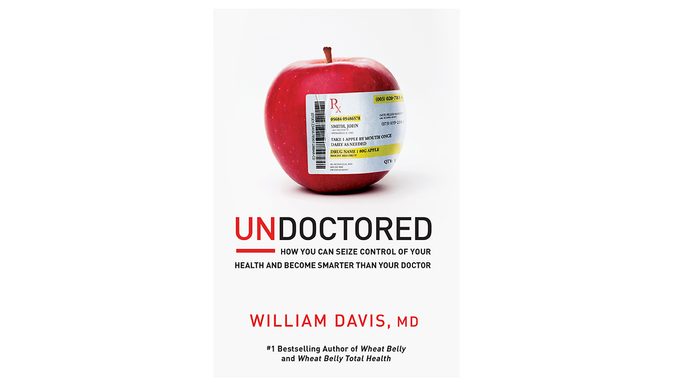How To Spot Fake Health News
What do you believe? What do you follow? Find out how to decipher between a sales gimmick and real health care with Dr. William Davis’s tips.

If you were in the market for a new car, would you rely on a TV sales pitch that shows how smart and sexy you’d be in the company’s car as your sole source of information? Or the advice of a car salesman? Probably not. You would look for unbiased reviews from reliable sources, as well as feedback from people who purchased the model you’re interested in. Not very sexy, but a lot smarter.
Likewise, in your exploration for health information, it is important to avoid misleading marketing and other pitfalls. First of all, view marketing or advertising as sales pitches that are unreliable; never rely on them as your sole information source. They are trying to sell you something, not provide unbiased information.
After you have dismissed all the obvious marketing being blasted your way, here are some guidelines to follow when processing all the health information you encounter.
• Whenever possible, dig for the primary source of information since news reports and websites (secondary or tertiary sources) commonly exaggerate or misinterpret results. For instance, if you are searching for the results of a particular study you heard about on the news, find the actual research report. The National Library of Medicine publishes medical studies on its website, PubMed (pubmed.gov). Though you may not fully understand the language of the entire study, the abstract summary is usually easy to understand. (Reading the entire study can be helpful, but only during a very serious effort at exploring a question.) Do this with some regularity and you will learn that what news reports say and what the science says are often two very different messages.
• Should you dive deeply into any medical study, always read the disclosures (i.e., the financial ties held by the study’s authors). As you now know, if the drug or medical device industry supported the study or the investigators, be skeptical of the findings of the study and be ready to completely dismiss them. The findings might be true, they might be exaggerated or incomplete, or they might be completely biased and untrue—but you won’t be able to tell which. Learn to not rely on studies funded this way, even though most doctors do.
• Identify websites and information (i.e., secondary) sources that you can trust. You will find over time that there are sites and authors that, time and again, are able to explain health issues clearly and process new information into useful strategies. (I list some useful starting places in Appendix D. Undoctored will get you off to a powerful start, but as your curiosity and experience grow, you will indeed want to expand your horizons into new sources.)
• Recognize that there are information sources that are strongly biased in favor of commercial interests and should never be relied on for information, even though the information is passed off as fact, even reviewed by doctors. If ads for prescription drugs or hospitals are featured on the website, avoid that site, since the information is designed to increase your consumption of prescription drugs or hospital testing, not provide health. (A very popular website, for instance, that begins with web and ends with MD is one such site that you should never rely on for unbiased information.)
• If information is tied to a sales offer for a product, reject that site as an unreliable source of information. It might still be a useful source of a product but should not serve as a source for information about the value of that product. For example, if you are exploring whether the nutritional supplement ashwagandha is useful to deal with stress, don’t rely on a retailer of the product telling you that this is the best solution for stress on the market. Instead, find a primary or trusted secondary source for information.

Printed with permission from Undoctored:Why Healthcare Has Failed You and How You Can Become Smarter Than Your Docto , by Dr. William Davis, HarperCollinsCanada Ltd. 2017




